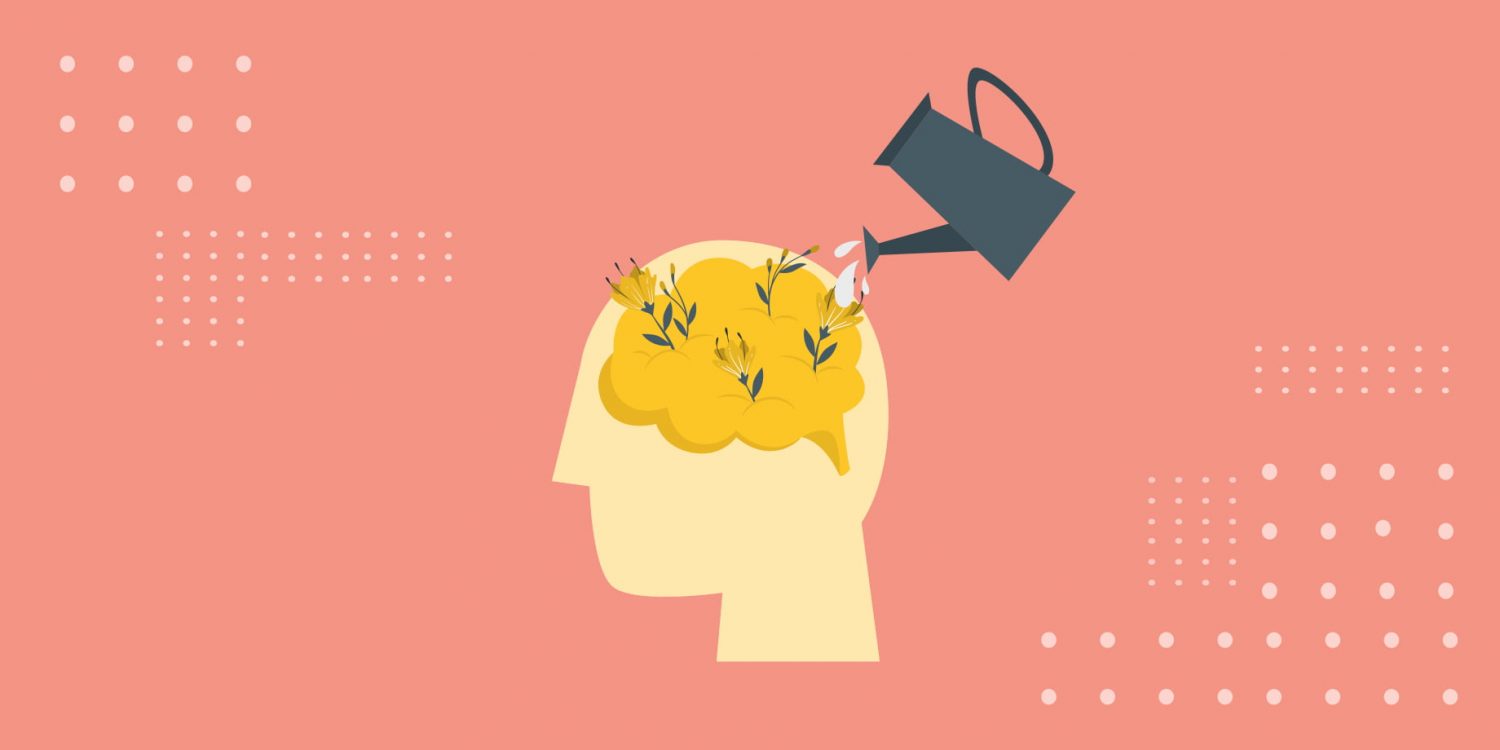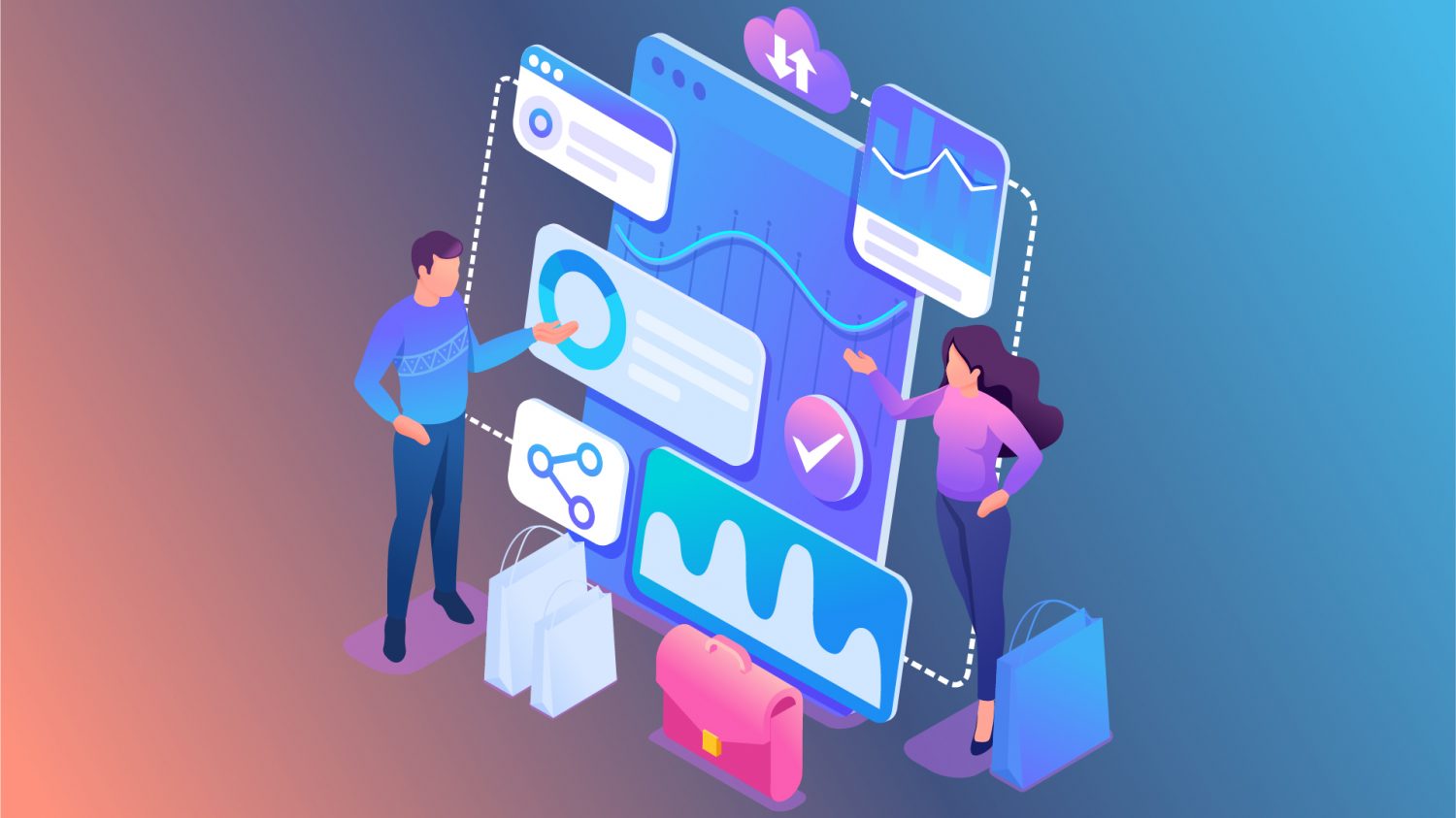Contents
People around us struggle with their mental health daily. Millions of peers keep their problems a secret, facing them alone. Because there is a strong stigma attached to mental health. If you add to that the future uncertainty, people try every way to maintain their inner equilibrium. They are looking for alternative ways to deal with anxiety, namely chatbots based on artificial intelligence.
AI is rapidly evolving, and many people prefer to tell a robot about their condition rather than a live person. There are more and more reasons for them to turn to technology, especially since they now have the potential to support mental health, unbiased information, and round-the-clock responses.
In this article, we’ll explore why mental health bots are gaining popularity and exactly how they can help.
The mental health crisis
Many people either experience new mental health symptoms or feel worsened by loneliness, fear, or stress. According to the WHO, about 450 million are currently struggling with mental illness.
A mental health crisis can take many forms. A person may self-harm, think about suicide, fall out of reality, and behave recklessly. And there may be no warning signs until a certain point.
Depression is one of the leading causes of disability. Suicide is the second leading cause of death among young people. And people with severe mental illnesses die prematurely.
Most mental illnesses can be treated even at a low cost. However, the gap between people who need help and those who have access to it is still enormous. In addition, people are often reluctant to seek treatment because of the stigma of the disease. And because everyone is isolated due to the pandemic, some along with their families, it’s even harder to get therapy.
Small wonder that mental health apps like Calm, Headspace, Replika have received a lot of installations on mobile since April 2020.
Therefore, in recent times there has been a growing recognition of the role of mental health in achieving global development goals. Although there are still situations where no virtual friend can help. So companies offer virtual therapists based on artificial intelligence. They are ready to listen to the interlocutor and maintain the conversation, and guarantee complete confidentiality.
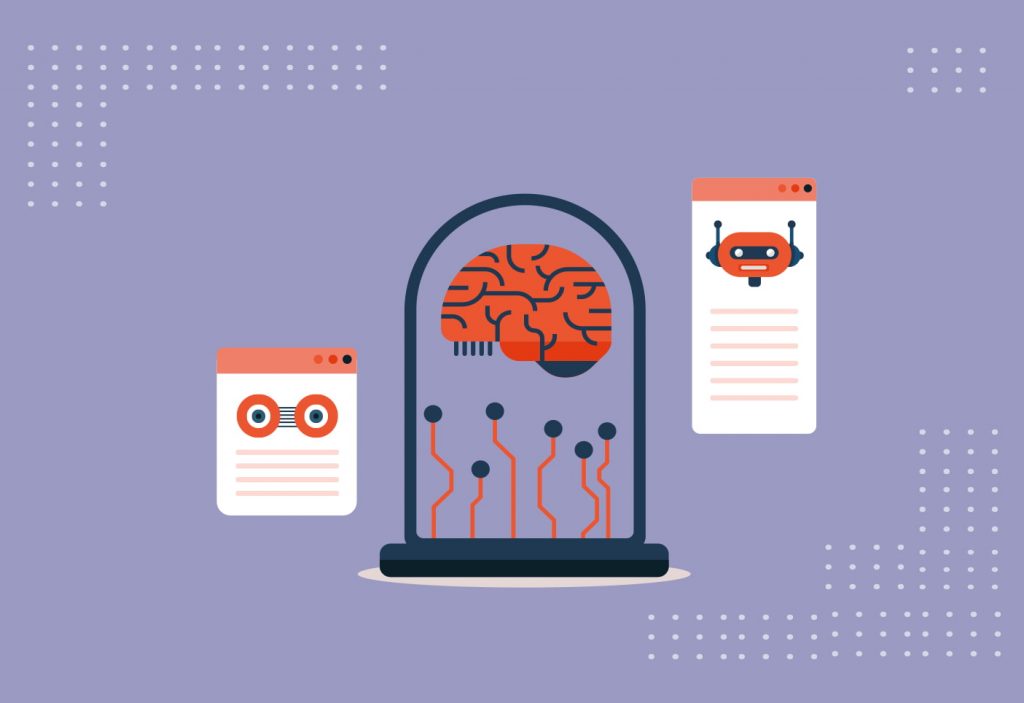

How AI can support mental health
The results of a study by the Australian Robotic Vision Center and Queensland University of Technology have shown us that social robots have the potential to help people struggling with depression, drug and alcohol abuse, and eating disorders. And a study by the Technical University of Munich found that robots could help create new therapies and opportunities for interaction with hard-to-reach populations and improve patient response.
AI-based protocols can be used at any time, provide instant information regarding treatment, and at the same time ensure complete privacy. The AI acts as an assistant in the area of disease detection and preliminary diagnosis. However, it can only serve as an additional tool, not as a complete substitute for a doctor. In non-standard situations, AI decisions can be wrong. Mental problems and their complexity can be quite different, so sometimes you need a “clinical view” that AI has not yet achieved.
AI mental health treatment protocols will effectively bridge the gap between the patient and the availability of treatment over time.
For example, Massachusetts Institute of Technology researchers have developed a neural network model that can detect depression in speech patterns in recorded text and audio conversations. In the future, the model could be added to mobile apps that track a user’s text and voice for mental illnesses. This is especially important for people who cannot go to a mental health clinic for a proper diagnosis because of distance, cost, or even anxiety over being vulnerable to a therapist.
Basic ways to use AI in mental health
1. Personal perception involves using sensors and data from mobile devices to obtain background and behavioral information. This information is then used as input to machine learning to predict mental health conditions. For example, mouse and keyboard click patterns can be sources of information about depression and anxiety.
2. Natural language processing of text and social media content. Voice and intonation can also provide important information about people’s psychological states. AI-based systems can use language processing and sound analysis to recognize signs of mental health problems. Studies have shown that poor vocabulary, semantic incoherence, and syntactic complexity are signs of serious mental illness such as schizophrenia or other forms of psychosis.
3. Chatbots. Technically, a bot attempts to mimic a real conversation by using responses to messages and may also include complex sound analysis protocols. Simple chatbots help navigate and find information about therapy and physician recommendations. However, work on AI is now aimed at introducing sophisticated language processing techniques to enable therapeutic communication.
Bots are a major help to the doctor in critical situations. The best-known bots in the mental health field are Woebot, Wysa, and Tess. They mostly include cognitive-behavioral protocols and mindfulness protocols.
Why chatbots for mental health treatment are becoming popular
The rise in popularity of chatbots in healthcare is simply the growth of chatbot technology in general. Chatbots are serving customers and people are getting used to interacting with them.
Bots are constantly learning, getting smarter, and being able to interact with people through machine learning and natural language processing, which leads to finding new ways to use them.
And the rise in the bots’ popularity here is tightly linked to people’s growing concerns about mental health. More and more people are seeking help to maintain a stable mental state. In any case, this increases the burden on therapists. As a result, one has to wait too long to get professional help.
So this is where the simple availability of support bots for people lies in the first place. This is a quick and reliable way to solve a serious problem. Most of these bots are free. There are also bots for the visually or hearing impaired.
Many people generally prefer to talk to a chatbot rather than a real person because chatting with a bot may not make some people anxious, unlike face-to-face or phone conversations. While therapists themselves can use their bots to monitor at-risk people in a relaxed setting.
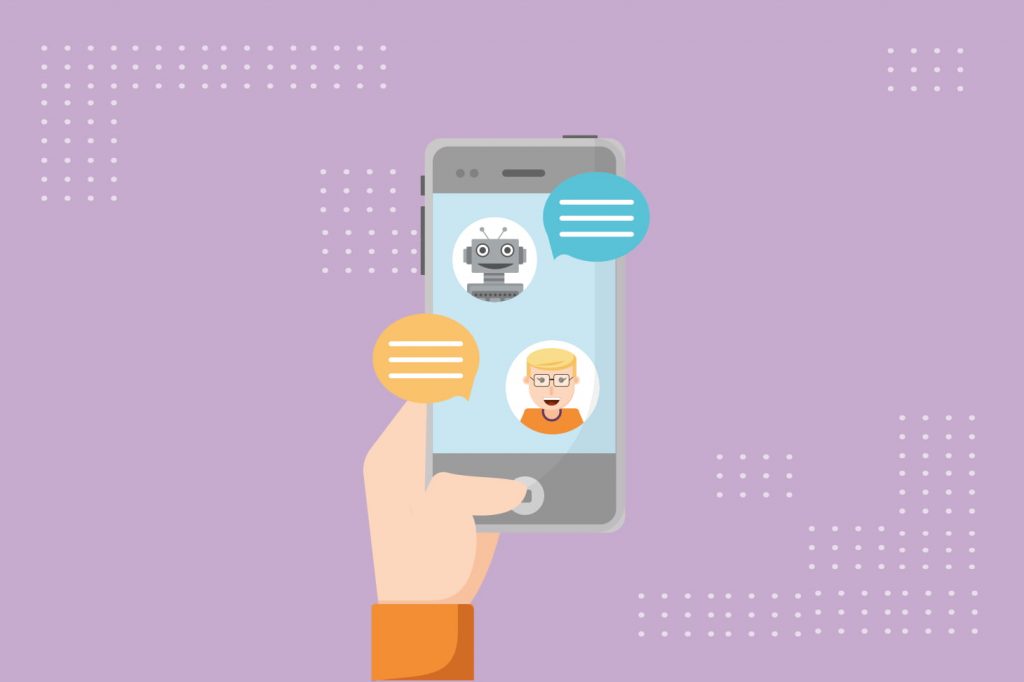

What do mental health chatbots do?
The main bot function is to perform tasks that normally require human intelligence. Mental health chatbots respond to different preset responses depending on the feedback. They support users and engage in the conversation when they feel overwhelmed or lonely. Some chatbots respond only when users reach out to them. Others actively involve people in dialogue. Some bots may simply listen to the user so that they can express their feelings, concerns, or just chat with a therapist. This is how mental health chatbots determine the user’s mood and may react with empathy.
Bots can give advice or recommendations to help users challenge negative thoughts or habits. By modeling behavioral therapy tactics, bots encourage users to accept their emotions. They offer different tools and resources, like meditation or mental exercises.
For example, Orexo and Woebot claim to personalize services by directing people to different activities based on their responses. Orexo uses questions about drinking habits and the path to treatment. For example, exercises for meditation, creating a diary of alcohol consumption and setting and tracking goals to reduce it.
Mental Health Chatbots
Woebot
Woebot was created by a team of Stanford University psychologists and AI experts. The chatbot texts users daily to find out how and what they’re doing. It then saves the entire text of the messages, and its questions and answers gradually become more specific, referring to previous conversations. The bot tracks the user’s mood and needs. It also suggests watching a video on the topic, playing a little psychological game, or other helpful tools.
His work is based on cognitive behavioral therapy. It is a common form of psychotherapy that addresses psychological problems by changing destructive patterns of thinking and behavior.
Because CPT is structured and skill-oriented, many experts believe that it can be used at least in part with an algorithm. Some studies show the effectiveness of CBT via the Internet to be as effective as CBT conducted by human therapists.
The Woebot app is available for iOS and Android users, as well as via Facebook Messenger, which allows to engage targeted groups of students.
Moodkits
Moodkit was created by mobile app development company Thriveport. The bot is available to download from the Apple store for $5. This chatbot, like Woebot, uses cognitive behavioral therapy to get users to take action to improve their mental health.
Moodkit provides professional psychology tips and tools for everyday life. For example, to raise a user’s mood. Moodkit has a tracker that tracks a user’s mood changes throughout the day or week. The bot also has a Moodkit journal, where the user can record his thoughts throughout the day.
Moodnotes
Moodnotes is a joint project of ustwo and Thriveport studios. With Moodnotes, users can keep a diary of their mood – and the app will give recommendations on how to improve it.
In the app, the user has to describe what his mood is at the moment. If the mood is bad, the service will ask the user a few questions on various topics, such as how his day was. Then the system will offer some tips from psychologists that can help to return the positive mood. If desired, the user can leave a note about how he’s feeling and why.
The app is available on the App Store and costs $3.99.
Wysa
Wysa is an emotionally intelligent bot based on artificial intelligence that helps users manage their emotions and thoughts. It uses several tools, such as cognitive behavioral therapy and dialectical behavioral therapy, to understand emotional and mental health, and offers well-managed meditation and breathing exercises.
The artificial intelligence in the app can assess whether a dialog is consistent with signs of depression or anxiety disorders. And if it finds any, it recommends visiting a doctor. If there are signs of abuse or suicidal thoughts in the messages, the bot will suggest calling an emergency service.
According to CEO Jo Aggarwal, people most often use Wysa to improve sleep, reduce anxiety or fix something in their relationships.
Youper
Youper is an artificial intelligence platform that supports a user’s mental health anytime and anywhere. Youper’s founder, psychiatrist Jose Hamilton, said he decided to create the app because he wanted to make psychological help more accessible. According to him, many people with mental illnesses do not seek qualified help because of fears. They are afraid to talk about their problems with someone else, while others simply can’t afford to pay for psychotherapy.
Youper’s virtual companion asks the same question every day, “How are you doing?” Then builds a conversation around the answer to helping the user deal with feelings, improve mood, and overcome symptoms of anxiety and depression.
Artificial Intelligence uses techniques from a variety of psychological therapies, including cognitive-behavioral therapy, acceptance and responsibility therapy, and meditation.
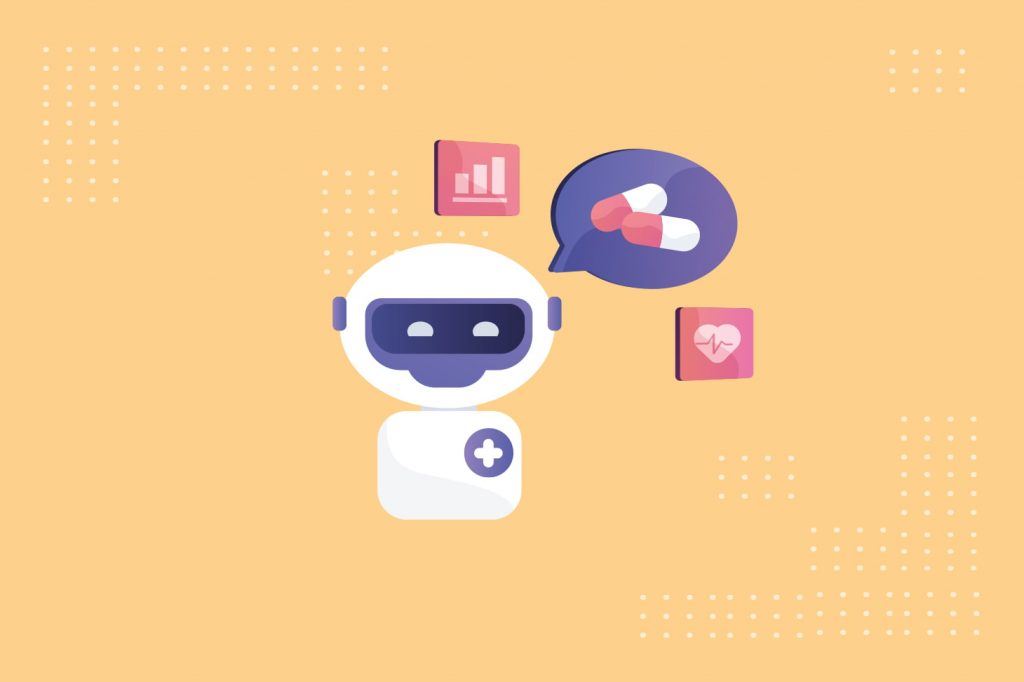

Conclusion
Of course, treating mental illnesses without human intervention and proper diagnosis is impossible. However, mental health chatbots and apps are a tool for tracking and improving mood, which will be useful for patients with problems accessing medical care. With their help, a person can do exercises, based on cognitive behavioral therapy and other research-based symptom management techniques, to cope with stress and anxiety.
Interested in the topic of chatbots? Write to us and we will tell you more about them.
